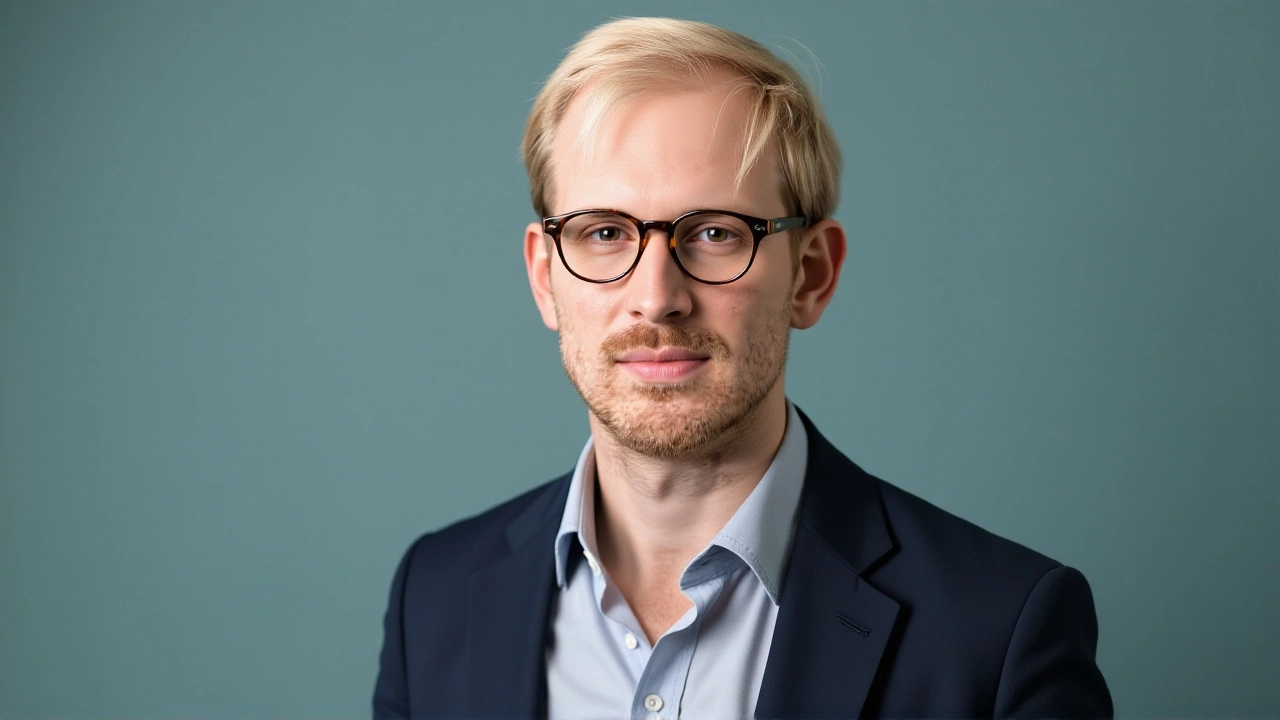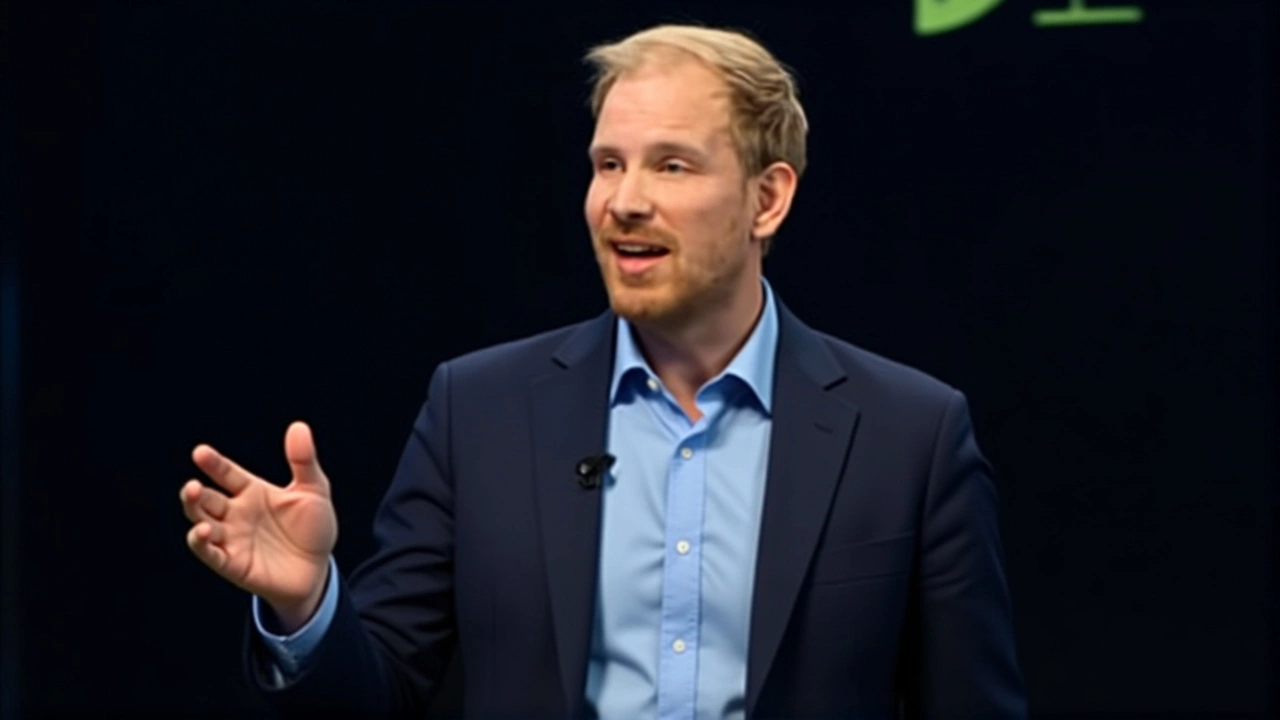On May 6, 2025, Rutger Bregman will drop a book that doesn’t just ask you to think differently—it dares you to live differently. Moral Ambition: Stop Wasting Your Talent and Start Making a Difference, published by Little, Brown and Company (an imprint of Hachette Book Group), isn’t another self-help manual wrapped in philosophical fluff. It’s a call to arms for the 80,000-hour generation—the average worker who spends nearly a third of their life at a job they may not believe in. And it’s backed by a movement: The School for Moral Ambition.
What ‘Moral Ambition’ Really Means
Bregman, the Dutch writer behind the global phenomenon Humankind: A Hopeful History, isn’t talking about climbing ladders. He’s talking about changing the ladder itself. "Moral ambition," he writes, "is the will to be among the best—but with different measures of success. Not a fancy title, fat salary, or corner office, but a career dedicated to the best solutions to the world’s biggest problems."
That means tackling climate change, dismantling Big Tobacco’s influence, or ensuring the next pandemic doesn’t catch us flat-footed. It’s not about charity. It’s about career realignment. He points to builders—not billionaires—who’ve chosen the harder path: the epidemiologist working in a rural clinic, the engineer designing affordable clean water systems, the teacher in a neglected district who turns curriculum into liberation.
"No one would remember the Good Samaritan if he’d only had good intentions; he had money as well," Bregman quotes Margaret Thatcher—not to endorse her politics, but to underscore a truth: intention without resources is noise. Action needs both heart and leverage.
The Endorsements—and the Backlash
The book’s early buzz is deafening. Steven Pinker, Harvard professor and author of Enlightenment Now, called it "a fresh and practical guide to idealism," praising Bregman for avoiding "easy moralizing." Max Roser, founder of Our World in Data, went further: "This is the practical handbook for anyone ready to dedicate their life to making real change."
Even Adam Hochschild and Rory Stewart, seasoned chroniclers of moral courage, weighed in with unreserved praise. Stewart called Bregman "a reliable and articulate voice of pragmatic solidarity," noting his ability to turn noble intentions into executable strategy.
But not everyone’s cheering. Jacobin magazine’s critique cuts deep: "Moral Ambition is thus first and foremost a self-help book. It gazes at the world from a thoroughly individualistic perspective." The piece argues Bregman reduces historic movements—like abolitionism or Dutch resistance to Nazi occupation—to anecdotes about "Great Personalities," ignoring the collective, systemic forces that drove change. "Where are the unions? The protests? The strikes?" the reviewer asks. "What if your talent is in a factory, not a think tank?"
Bregman doesn’t dismiss this. He acknowledges it in interviews. "I’m not writing for revolutionaries," he told The Guardian. "I’m writing for the person who still has a 9-to-5 but wants to wake up feeling like their life matters."
The School for Moral Ambition: More Than a Book
Here’s the twist: the book is just the entry point. The School for Moral Ambition is already operating as a global network—with hubs in Amsterdam, Nairobi, Toronto, and Sydney. It’s not a university. It’s a peer-to-peer coaching system. Think of it as a cross between a TEDx talk and a startup incubator, but for ethical impact.
Participants don’t just read. They apply. They form local chapters. They submit project proposals for seed funding. One cohort in Cape Town is developing low-cost air quality sensors for informal settlements. Another in Portland is training former inmates to become sustainability educators. The goal? To turn 10,000 people by 2027 into "moral ambition ambassadors"—people who don’t just talk about change, but build it.

Why This Matters Now
Let’s be honest: burnout is pandemic-level. Gen Z is quitting jobs in droves. Millennials are rethinking retirement. And climate anxiety isn’t a buzzword—it’s a diagnosis. Bregman’s timing is uncanny. He’s not offering escapism. He’s offering a map.
"We’ve been sold the lie that success is personal," he writes. "But the truth? Your legacy isn’t measured in your bank balance. It’s measured in how many people you helped become better versions of themselves."
And he’s not alone. The rise of "impact investing," the surge in social enterprise degrees, the explosion of purpose-driven brands—all point to a quiet cultural pivot. This book isn’t creating that shift. It’s naming it. And giving it a playbook.
What’s Next?
The audiobook, featuring a candid interview between Bregman and his editor Alexander Littlefield, drops the same day as the print edition. There are plans for a documentary series in partnership with The Guardian, which has already named the book A GUARDIAN BOOK OF THE SUMMER 2025 and THE INSTANT SUNDAY TIMES BESTSELLER.
Bregman says he’s not trying to become a guru. "I want to be the guy who handed you the keys," he said in a recent podcast. "You drive. I’ll be in the backseat, cheering."
And if you’re wondering whether one book can spark a movement? Look at Humankind. It sold over 3 million copies. It changed how schools teach history. It made people rethink human nature—not as selfish, but as cooperative.
Maybe this one can do the same for work.
Frequently Asked Questions
What is the core argument of 'Moral Ambition'?
Rutger Bregman argues that society’s obsession with wealth, status, and titles is eroding both personal fulfillment and planetary health. He proposes replacing these metrics with a new standard: the tangible impact you have on solving global crises—like climate change, pandemic preparedness, or corporate malpractice. Success, he insists, is not what you accumulate, but what you contribute.
How is 'The School for Moral Ambition' different from traditional nonprofits or universities?
Unlike nonprofits that rely on donations or universities that require degrees, The School for Moral Ambition is a peer-led, action-oriented network. It offers mentorship, small grants, and local chapter support to professionals who want to pivot their careers toward societal impact—no formal application, no tuition. It’s designed for people already in the workforce, not students.
Why has 'Jacobin' criticized the book?
The critique argues that Bregman frames systemic problems—like exploitation or colonialism—as individual moral failures to overcome, rather than structural injustices requiring collective action. By highlighting "Great Personalities" like activists or scientists, the review claims he downplays the role of unions, strikes, and mass movements in achieving real change.
Who is the target audience for this book?
It’s aimed at professionals—especially those in their 30s to 50s—who feel unfulfilled despite career success. It speaks to teachers, engineers, nurses, and mid-level managers who wonder if their 80,000 work hours could be spent on something more meaningful. It’s not for the unemployed or the radical activist; it’s for the quietly disillusioned who still believe change is possible.
Is this book only for people in the Global North?
No. While early chapters focus on Western career structures, the movement’s global hubs—from Nairobi to Manila—show the philosophy is adaptable. The School for Moral Ambition actively recruits participants from the Global South, where grassroots problem-solvers often operate with fewer resources but greater urgency. Bregman insists moral ambition isn’t a luxury—it’s a necessity everywhere.
What’s the long-term vision for 'Moral Ambition'?
Bregman aims to embed moral ambition into mainstream culture—so that job seekers ask not just "What’s the salary?" but "What problem are you solving?" He envisions a future where corporations are ranked by their social impact metrics, and schools teach career planning through the lens of societal contribution. The ultimate goal: make moral ambition as aspirational as a Silicon Valley startup.
